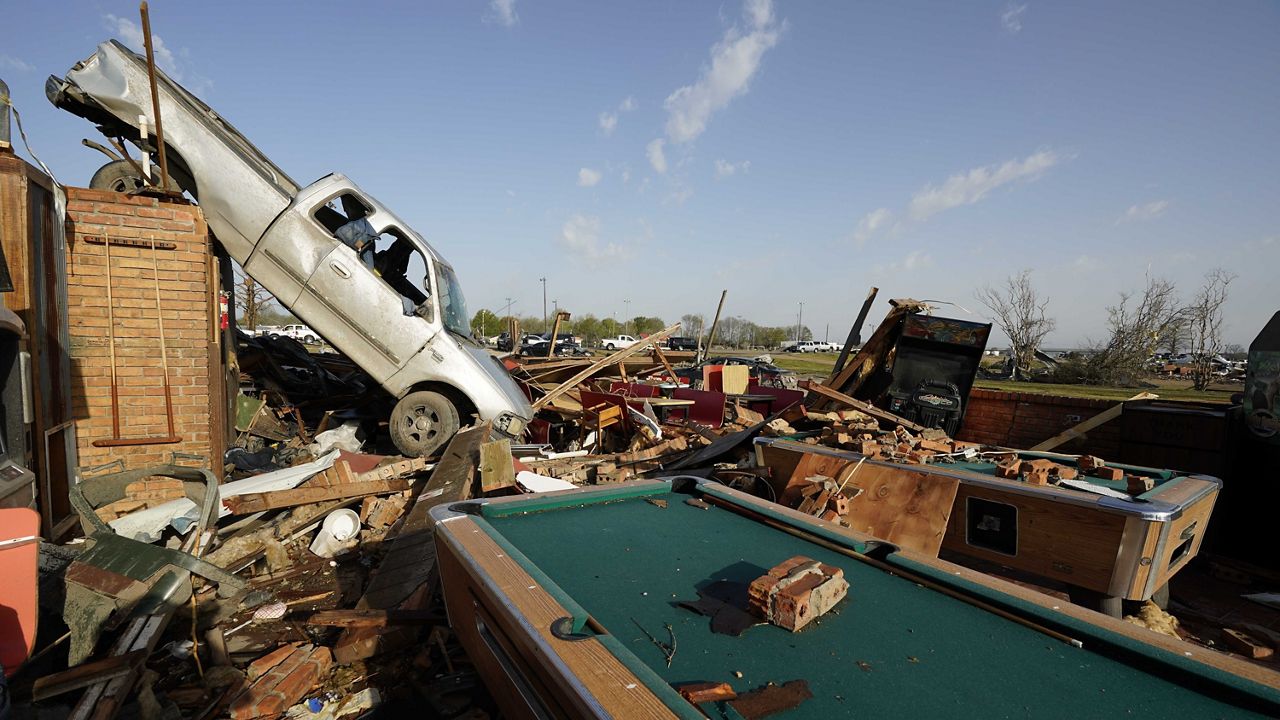The world is not acting fast enough on global warming, according to a top official at the United Nations.
“If we don’t solve the climate crisis, we’ll have a massive destabilizing impact across this entire planet,” Selwin Hart, the special adviser to the secretary-general on climate action and just transition, said.
What You Need To Know
- Current policies will bring global temperatures to unsustainable levels
- Selwin Hart fears many island nations will struggle to survive under the new climate
- He blames the oil industry for knowing long ago it was having a negative impact on the climate
- He warns about governments and companies claiming to clean their act without actually doing it
Under the leadership of Secretary-General António Guterres, the United Nations has placed climate change at the top of the international agenda, warning of the dangers of global temperatures rising above 1.5 degrees Celsius, or 2.7 degrees Fahrenheit.
"Current policies to reduce carbon pollution place us on a 3 degree, 3.2-degree Celsius pathway. So clearly, countries are not doing enough," Hart said.
For years, Hart has served in different climate change negotiator positions, including representing an alliance of small island developing states, including his native country Barbados.
"Even at 1.5 degrees of warming, some of these countries will disappear," Hart said. "As the United Nations, it is our solemn responsibility to fight for those on the front lines of the climate crisis. We have to fight for their survival. We fight to fight for their dignity, and we have to ensure that future generations of islanders, rather you are from the Marshall Islands, or Palau or Samoa or from Fiji or from Barbados, or Haiti or Jamaica, our struggle is their struggle."
The island of Manhattan is no exception. According to the National Oceanic and Atmospheric Administration, sea levels around the Battery have risen by nearly 9 inches since 1950 and are now rising at a speed of 1 inch higher every seven or eight years.
"The rate of sea level rise in New York is double the global average," Hart said. "So climate is already affecting the daily lives of New Yorkers."
Drastically reducing carbon emissions in the next decade would be necessary to avoid catastrophic consequences, according to Hart.
Hart asks nations to work together, and for richer countries to help others with developing their economies in a more sustainable way.
"We also need the average American to take the individual actions that are absolutely needed to live a more sustainable, climate-friendly life," Hart said.
Earlier this year, a new study showed that the oil giant ExxonMobil knew of the negative impact burning fossil fuels would have on the planet's climate since the 1970s.
Hart doesn't point fingers at a specific company, but sees the oil industry as the villain of the story.
"They've known for close to five decades that their actions and their core product was causing significant damage to the environment," Hart said. "And even today continue to invest in mis- and disinformation on the urgency of the climate crisis, while simultaneously raking in hundreds of billions of dollars in profits."
He fears that decarbonizing the global economy might not be achieved fast enough and warns of banks and other institutions claiming to be cleaning their act while still pushing the expansion of fossil fuels.
"Folks in positions of power, institutions in positions of power that are claiming to be climate leaders, but are actually not climate leaders, that makes me extremely frustrated. That makes me angry," Hart said.








